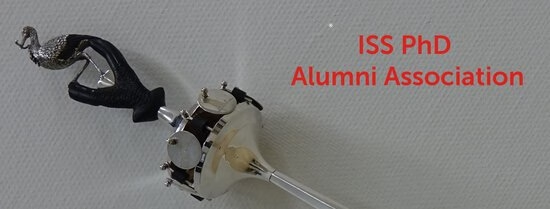These are some of the questions we will be considering during this ISS PhD Alumni Association webinar on Education, COVID and beyond: What challenges exist in our educational systems and how has COVID-19 revealed existing inequalities and new opportunities?
The webinar brings together two papers by PhD alumni Dr Marito Garcia (1990) and Dr Rose Namara (2009) that explore educational systems globally and in Uganda and ask how COVID-19 has revealed or accentuated existing inequalities and what can be done to improve the quality of education and teaching.
A third paper, by PhD alumna Ariunaa Dashtseren (2012), examines teacher development in Mongolia and proposes a more robust framework for evaluation that can improve educational quality and outcomes.
All three papers provide insights into the evolution of educational models, particularly in response to the pandemic, and propose a pathway forward to institutionalize robust and meaningful changes that increase access and improve outcomes for teachers and students alike.
The 3 presentations
Garcia presents an informal discussion and brainstorming on how COVID-19 has accelerated a transition to a new normal of blended-learning in higher education, where teaching and learning is partly online and partly in person.
He explores how this is likely to affect how tertiary education will be delivered and the challenges for education in the post pandemic era and asks what is the likely future of tertiary education delivery? Blended learning, online-offline, micro-credentials (nanodegree, micro-bachelors, specialization, micro-masters), digital credentials inside self-sovereign identities, and education mobility across borders enabled by credit-bearing online courses across universities (Tokyo convention-enabled) could be part of this future.
He will also touch on the new economics of tertiary education delivery with the blended-learning approach. He explores the power of big data and artificial intelligence to guide student careers— a new GPS to lifelong learning, and 'internet of education' (IoE) enabled by blockchain for immutability and trust.
Dr Marito Garcia works at Darden Business School, University of Virginia, USA and Adviser to the World Bank and Asian Development Bank.
Based on a paper co-authored by Rose Namara, Maria V. Kaguhangire-Barifaijo, Jude T. Rwemisisi and Robert Komakech, this presentation discusses challenges facing the educational manager in the era of COVID-19 which has not only disrupted education activities but also depleted actors of their economic power.
The paper examines challenges to the education sector occasioned by the advent of COVID-19, namely syllabi circumvention, remodeled education calendar, declining students’ morality, disengaged staff and students pursuing alternative survival modalities alongside the professional expectation to sustain their institutions’ glory.
It is evident that while COVID-19 has affected all sectors in varying magnitudes, the education sector was among the most hit. Considering that education leads to productive, peaceful, healthy, prosperous societies, the education manager is squarely accosted to sustain the learning activities while adhering to Standard Operating Procedures (SOP), some of which threaten the existing avenues for delivery of education services and encroach on the government’s budget allocation to the education sector, leaving education manager in the dilemma of pursuing the interests of education continuity and upholding the compliance with SOPs that threaten to indefinitely suspend or overhaul operations of education institutions.
Additionally, in the Ugandan context, the government has not sufficiently facilitated education managers to adapt to the ‘new normal’ arrangements for continuation of learning. The authors argue that the education manager’s effort to generate short term solutions for continuity of education amidst random COVID-19 episodes may only be sustained by institutionalized government support.
Responsiveness to needs of education stakeholders requires that the education manager adopts situational leadership and chaos management strategies, avails real time information for quicker decision making and recognizes the sector’s interconnectedness with other systems. It is necessary for the education sector to equip the education manager with COVID-19 responsive management competencies such as virtual space management, problem solving, innovation and ICT skills to enable them sustain teaching and learning as they comply with the SOPs for prevention of COVID-19.
Dr Rose Namara works for the Uganda Management Institute.
This presentation focuses on a survey of 82 teachers aimed at understanding secondary school teachers' development in Mongolia.
The research found that, among others, years of service (in the same school) is the major indicator of teacher development as well as teacher evaluation. Teacher evaluation fails to capture the academic misconduct of teachers, as teacher misconduct is hidden under the word of ‘teacher development’.
More importantly, this research suggests that in order to improve teacher development it is essential to conduct teacher evaluations in line with the conceptual framework proposed in this study.
Dr Ariunaa Dashtseren works at the Educational research methodology department, School of Educational Studies, Mongolian National University of Education
Discussants
- Dr Elissaios Papyrakis, Associate Professor in Development Economics (Macroeconomics) at the International Institute of Social Studies.
Much of his research has focused on the long-term economic growth processes of developing economies, in particular with reference to those exporting mineral resources. - Dr Georgina Gomez, ISS PhD alumna and Associate Professor in Institutions and Local Development at the International Institute of Social Studies.
In 2008, Georgina obtained her ISS PhD degree with distinction with a thesis on Community and Complementary Currency Systems in Argentina.

